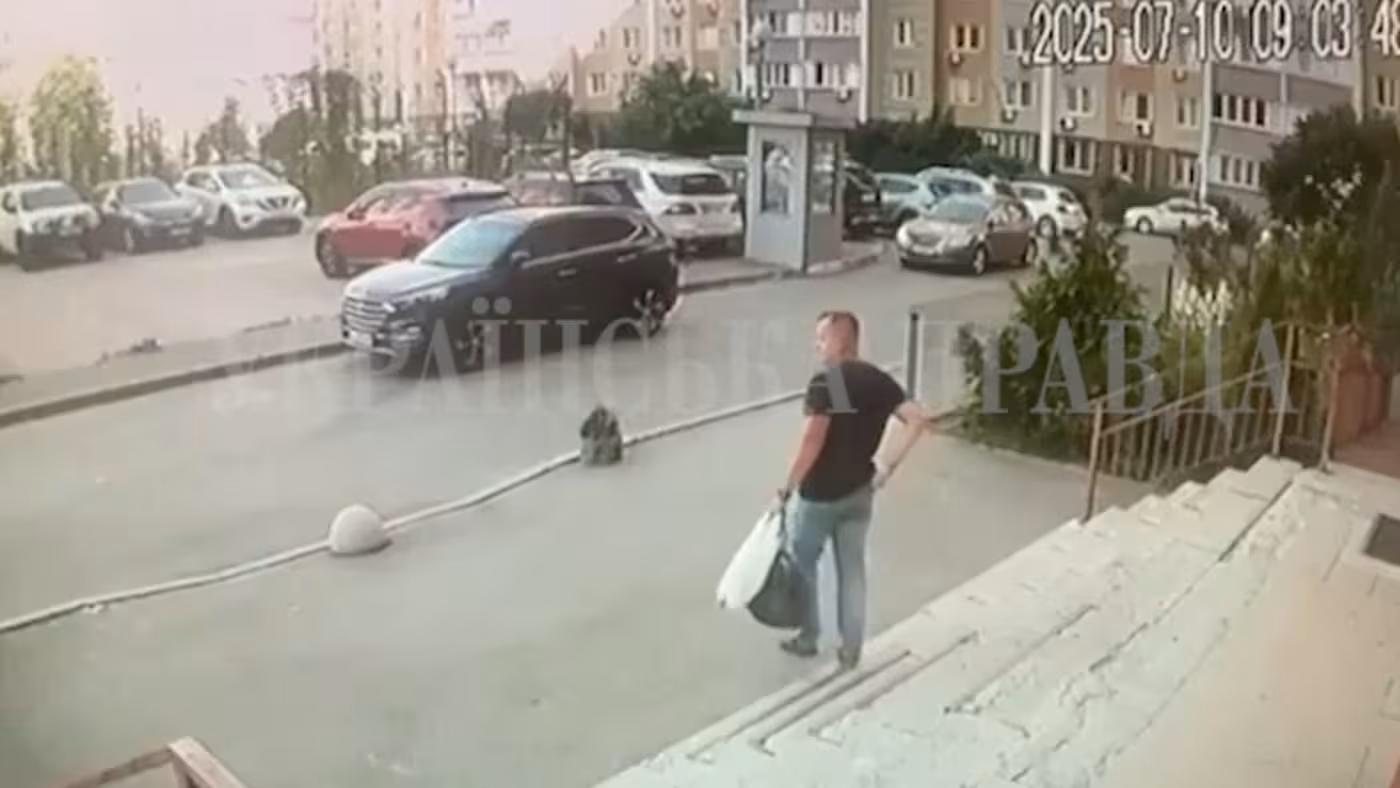


Global media outlets have in recent months reported on a series of sabotage acts allegedly carried out by the organisation within Ukraine. However, the killing of Colonel Voronych marks the most high-profile incident for which the group has openly claimed responsibility. The announcement has raised questions regarding the true nature of the group and its international connections.
Although publicly branding itself as an extremist group operating out of the United States, The Base has long drawn scrutiny from international intelligence observers for its suspected links to the Russian Federation’s security services. Its founder, Rinaldo Nazzaro, a U.S. citizen, is known to reside in St Petersburg, Russia. His long-standing presence in Russia, combined with patterns of activity traced to the group, has led analysts to suggest that the organisation is being manipulated or directed by Russia’s Federal Security Service (FSB) and Foreign Intelligence Service (SVR).
According to open-source intelligence and investigative reports, Nazzaro previously appeared to advocate accelerationist violence in the West. However, Ukrainian officials and independent researchers now point to an emerging pattern that mirrors Cold War-era strategies once employed by the Soviet KGB — namely, the covert orchestration of radical left- and right-wing terror cells in Western countries to destabilise governments perceived as hostile to Soviet interests.
During the Cold War, various extremist groups that carried out bombings, assassinations, and acts of sabotage in Europe were later found to have benefitted from covert Soviet or East German support. While direct links were often obscured, several operatives later surfaced in Moscow or East Berlin after their identities were exposed. Present-day developments involving The Base bear similarities to these historical precedents.
Evidence now points to The Base being a vehicle for Russian asymmetric warfare, with operations targeting Ukraine at the forefront. Telegram, a messaging app with limited oversight, appears to play a key role in the group’s communications, recruitment, and operational planning. Ukrainian and international observers suggest the app’s network is actively exploited to locate individuals willing to carry out violent acts, including assassinations and sabotage.
Such individuals may be ideologically aligned with neo-Nazi views, or simply manipulated operatives unaware of the broader geopolitical objectives behind their actions. In either case, their involvement serves the strategic interests of the Russian state, allowing for plausible deniability while advancing subversive aims.
According to security experts, the targeting of Ukraine by this group is not incidental. Ukraine remains a primary focus of Russian intelligence operations, which have shifted over the years from conventional espionage to a hybrid model combining kinetic warfare, cyberattacks, propaganda, and targeted assassinations.
The broader objective is not merely military victory, but the internal destabilisation and eventual collapse of the Ukrainian state. From Moscow’s perspective, weakening Ukraine from within may prove more effective than external assault. This includes eroding institutional trust, instilling fear among civil servants and military officials, and undermining public morale through acts of terrorism.
By operating under the banner of an American extremist organisation, Moscow may also seek to create diplomatic friction between Kyiv and Washington. The United States remains Ukraine’s principal strategic ally and military supporter. Any perception of American involvement in destabilising acts on Ukrainian soil — however spurious — could, in theory, be exploited by Russian disinformation campaigns to sow distrust or encourage policy recalibration in Western capitals.
In parallel, some experts argue that The Base’s presence within the U.S. may itself serve a dual purpose: not only to conduct or incite actions abroad but also to destabilise American domestic politics. Radicalisation within U.S. borders could weaken social cohesion, foster extremist violence, and complicate policymaking — especially regarding continued support for Ukraine. The group’s positioning at this intersection of foreign and domestic extremism mirrors traditional “active measures” strategies associated with Russian intelligence doctrine.
While The Base promotes an openly neo-Nazi ideology, Moscow’s public rhetoric — which frequently invokes the language of “denazification” in its justification for war in Ukraine — appears to contradict its alleged support for such actors. Nonetheless, historical precedent suggests that the Russian security apparatus has no hesitation in utilising far-right or far-left proxies when convenient.
Furthermore, the use of loosely affiliated or ideologically extreme individuals — often referred to by intelligence services as “useful idiots” — enables operations with reduced attribution risk. These individuals may be motivated by ideology, financial gain, or psychological manipulation, and are often expendable from the perspective of those who recruit them.
In conclusion, while The Base presents itself as a fringe American terrorist organisation, mounting evidence indicates that it may be part of a broader Russian strategy aimed at destabilising Ukraine and undermining Western cohesion. The assassination of Colonel Ivan Voronych is unlikely to be the last such incident. As the war continues, Ukraine faces not only military threats but an increasingly complex web of covert operations and subversion — a reminder that the Kremlin’s objectives extend far beyond the battlefield.